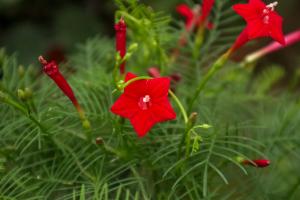How to Neutralize Tap Water for Plants
Tap water is often treated with chemicals that can have a negative impact on plant growth. These chemicals can change the pH level of the water and cause harm to the plants. In order to neutralize tap water for plants, there are several methods that can be used.
Boiling
Boiling tap water is an effective way to neutralize harmful chemicals such as chlorine and fluoride that are commonly found in tap water. Boiling tap water can cause the chemicals to evaporate, leaving behind neutral water that is safe for plants to absorb. However, this method is not suitable for large quantities of water as it can be time-consuming and may not be practical for everyday use.
Filtration
Using a filtration system is another effective way to neutralize tap water for plants. There are several types of filtration systems available, such as activated carbon filters or reverse osmosis filters. These filters are designed to remove chemicals and contaminants from tap water, ensuring that the water is safe for plants to absorb. Filtration systems can be expensive, but they are a good long-term investment for plant owners who are concerned about the quality of their tap water.
pH Test Kits
pH test kits are an affordable and easy way to measure the pH level of tap water. The ideal pH for plants varies by species, but a pH level between 6.0 and 7.0 is generally considered safe for most plants. If the pH of tap water is outside of this range, there are several methods that can be used to adjust the pH of the water. pH adjusting products such as limestone can be added to the soil to raise the pH level, while citric acid can be added to lower it. It is important to note that adjusting the pH level of tap water can be a delicate process, so it is best to start with small adjustments and test the water frequently to ensure that the pH level is within the safe range.
Rainwater Collection
Rainwater is a natural and safe source of water for plants. Unlike tap water, rainwater does not contain chemicals or contaminants that can harm plants. Collecting rainwater can be done by setting up a rain barrel or by using a system of gutters to direct the water to a collection point. Although rainwater is an effective way to neutralize tap water for plants, it is not always a reliable source of water due to weather patterns and location. Additionally, rainwater may not be suitable for plants that require a specific pH level.
Conclusion
Neutralizing tap water for plants is an important step in ensuring the long-term health of your plants. Whether it's boiling, filtration, pH testing, or rainwater collection, there are several methods that can be used to achieve neutral water that is safe for plants to absorb. By taking the time to understand the best method for your plants and implementing these techniques, you can help to ensure that your plants thrive and grow strong.

 how many times do yo...
how many times do yo... how many planted tre...
how many planted tre... how many pine trees ...
how many pine trees ... how many pecan trees...
how many pecan trees... how many plants comp...
how many plants comp... how many plants can ...
how many plants can ... how many plants and ...
how many plants and ... how many pepper plan...
how many pepper plan...































